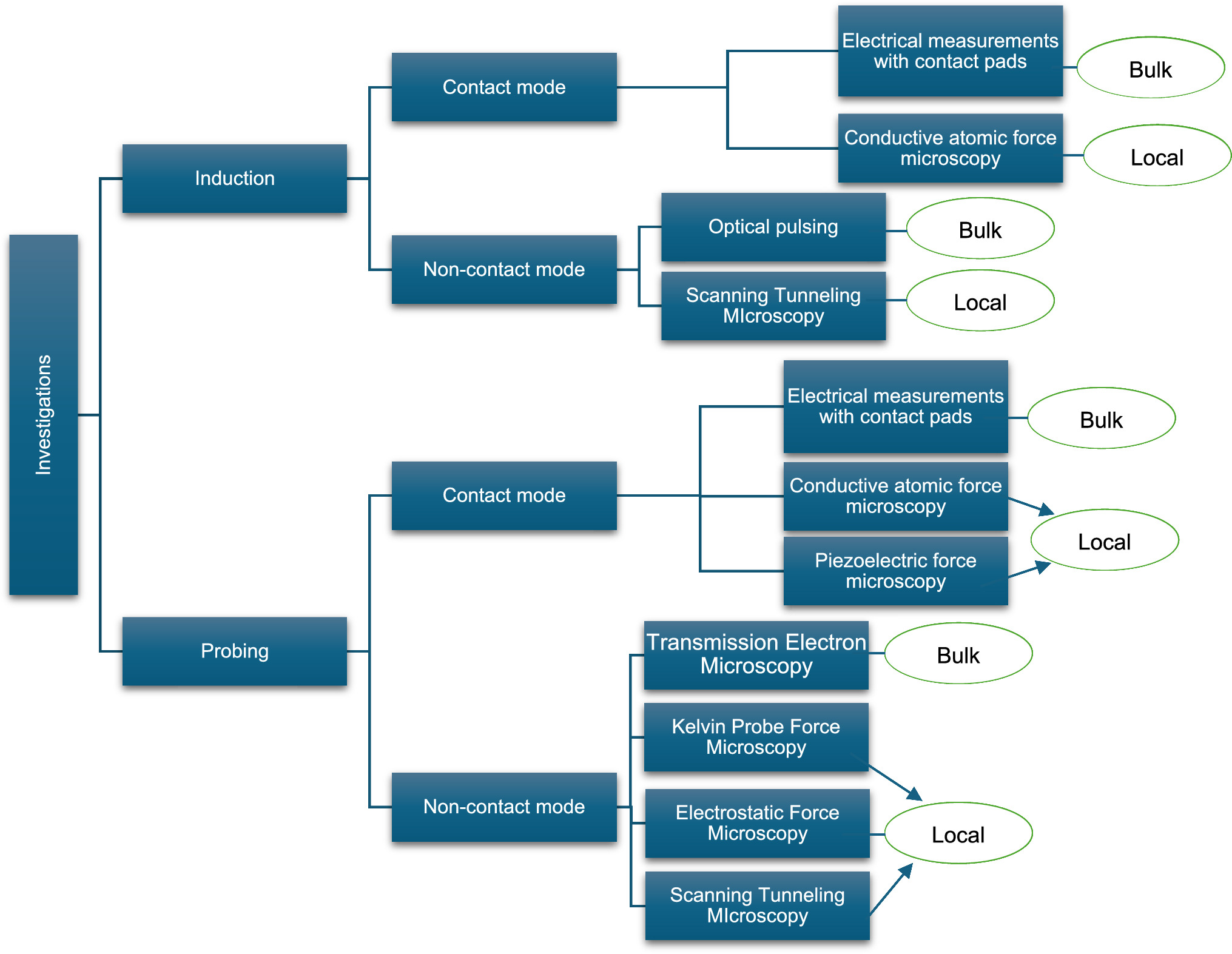https://doi.org/10.1140/epjp/s13360-025-06362-5
Review
Induction and probing methods of resistive-switching-based memories: a comparison and outlook
Department of Physics, RV College of Engineering, RV Vidyanikethan Post, Mysuru Road, 560059, Bengaluru, Karnataka, India
Received:
22
November
2024
Accepted:
24
April
2025
Published online:
11
July
2025
Resistive-switching (RS) is useful for fabricating non-volatile memory devices. The memory behavior can originate either due to intrinsic sample properties or due to the influence of external experimental arrangements. In cases where the sample contribution to switching is the only governing factor, the scope for fabricating smaller memory devices broadens, leading to high-density systems. Induction and probing techniques influence the RS of a sample in contact mode measurements. Here, non-invasive methods come to rescue unveiling the actual sample contribution. Again, the probing should be capable of measuring responses down to a few angstroms to investigate high-density memory devices; this is also possible with the non-contact measurements. This article sets out the available measurement tools to induce and probe RS based on their degree of influence on the phenomenon. This review also discusses the benefits and limitations of each type of measurement, pointing to the suitability and scope of application in the future.
Copyright comment Springer Nature or its licensor (e.g. a society or other partner) holds exclusive rights to this article under a publishing agreement with the author(s) or other rightsholder(s); author self-archiving of the accepted manuscript version of this article is solely governed by the terms of such publishing agreement and applicable law.
© The Author(s), under exclusive licence to Società Italiana di Fisica and Springer-Verlag GmbH Germany, part of Springer Nature 2025
Springer Nature or its licensor (e.g. a society or other partner) holds exclusive rights to this article under a publishing agreement with the author(s) or other rightsholder(s); author self-archiving of the accepted manuscript version of this article is solely governed by the terms of such publishing agreement and applicable law.





